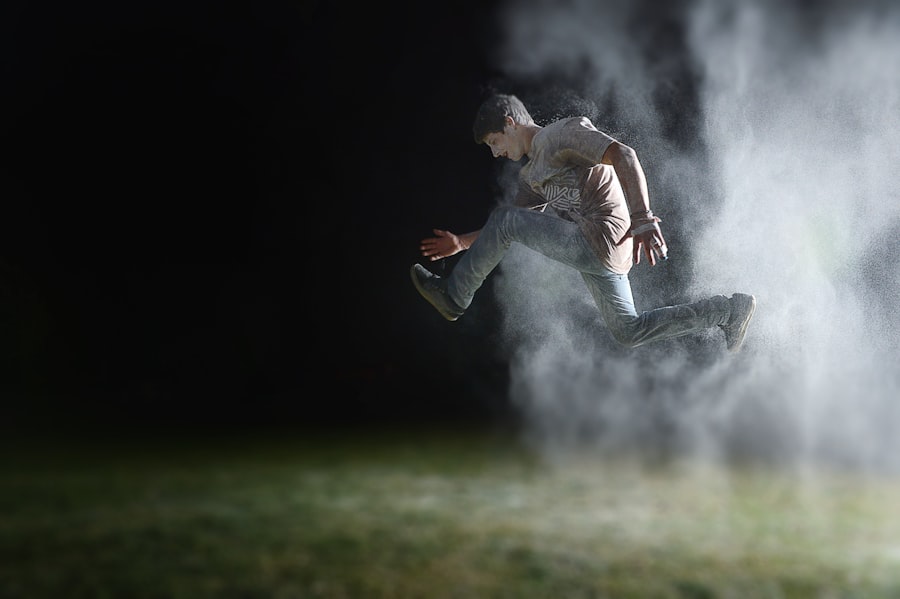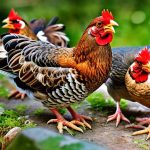Maintaining optimal temperatures for chickens is essential for their health, productivity, and overall well-being. Chickens are particularly vulnerable to high temperatures, which can lead to heat stress, a condition that negatively impacts their physiology and behavior. Heat stress can result in decreased egg production, reduced growth rates, and in severe cases, mortality.
When exposed to excessive heat, chickens experience a range of physiological changes. Their feed intake decreases, which can lead to nutritional deficiencies and weight loss. Egg production often declines as the birds redirect energy towards cooling themselves.
Moreover, heat stress can compromise the chickens’ immune system, making them more susceptible to diseases and infections. The effects of heat stress extend beyond physical health, impacting the chickens’ behavior and social dynamics. Overheated chickens may become agitated, leading to increased aggression within the flock.
This can manifest as excessive pecking, bullying, and reduced social interactions, disrupting the harmony of the group. To mitigate these issues, chicken owners must implement effective cooling strategies. These may include providing adequate shade, ensuring proper ventilation in coops, offering cool water, and using misting systems or fans during particularly hot periods.
By maintaining a comfortable environment, chicken keepers can promote better health, sustained productivity, and improved welfare for their flocks.
Table of Contents
Key Takeaways
- Keeping chickens cool is important for their health and well-being, especially during hot weather.
- Chickens naturally regulate their body temperature through behaviors like panting, spreading their wings, and finding shade.
- Providing adequate shade in the form of trees, shrubs, or artificial structures can help chickens stay cool.
- Proper ventilation in the chicken coop is essential for allowing hot air to escape and cool air to circulate.
- Using water, such as misters, shallow pools, or wetting the ground, can help chickens stay cool and hydrated during hot weather.
- Implementing cooling techniques like frozen treats, electrolyte supplements, and adjusting feeding schedules can help chickens cope with heat stress.
- It’s important to monitor chickens for signs of heat stress, such as panting, lethargy, and reduced egg production, and take immediate action to cool them down.
Natural ways chickens regulate their body temperature
Panting and Wing Spreading
One of the most common methods is through panting. When chickens pant, they release excess heat from their bodies by evaporating moisture from their respiratory system. This helps them cool down and maintain a stable body temperature. Additionally, chickens will spread their wings away from their bodies to increase air circulation and promote cooling. This behavior is often observed when chickens are feeling hot and need to dissipate heat more effectively.
Seeking Shade
Another natural way chickens regulate their body temperature is by finding shade. When exposed to direct sunlight, chickens will seek out shaded areas to escape the heat. They will often rest under trees or other structures that provide protection from the sun’s rays. By finding shade, chickens are able to reduce their exposure to direct heat and lower their body temperature naturally.
Dust Bathing
Furthermore, chickens will also engage in dust bathing, which helps them remove excess oil and dirt from their feathers while also cooling themselves down. Dust bathing is a natural behavior that allows chickens to regulate their body temperature and maintain good feather health.
Providing adequate shade for chickens

One of the most effective ways to keep chickens cool during hot weather is by providing adequate shade in their environment. This can be achieved by creating shaded areas within the chicken coop or run using natural elements such as trees, shrubs, or artificial structures like tarps or umbrellas. By offering ample shade, chickens can seek refuge from the sun’s intense rays and lower their body temperature naturally.
Additionally, providing shade can also help reduce the risk of heat stress and its associated negative effects on the flock’s health and productivity. In addition to creating shaded areas within the chicken coop or run, it is also important to ensure that the entire area is well-ventilated to promote air circulation and further aid in keeping the chickens cool. Proper ventilation can help prevent the buildup of heat and humidity within the coop, creating a more comfortable environment for the flock.
By strategically placing windows, vents, or fans in the coop, chicken owners can help facilitate the flow of fresh air and reduce the risk of heat-related issues. Overall, providing adequate shade and ventilation is essential for keeping chickens cool and comfortable during hot weather.
Ensuring proper ventilation in the chicken coop
Proper ventilation in the chicken coop is essential for maintaining a comfortable and healthy environment for the flock, especially during hot weather. Adequate ventilation helps remove excess heat, moisture, and ammonia from the coop, creating a more breathable and cooler space for the chickens. Without proper ventilation, the coop can become stuffy and humid, leading to an increased risk of heat stress and respiratory issues among the flock.
Therefore, it is crucial for chicken owners to ensure that their coop is well-ventilated to support the overall well-being of their chickens. There are several ways to promote proper ventilation in the chicken coop. This includes installing windows or vents that can be opened to allow fresh air to enter the coop while expelling stale air.
Additionally, using fans can help improve air circulation and reduce heat buildup within the coop. It is important to regularly clean and maintain ventilation openings to prevent blockages and ensure optimal airflow. By implementing these measures, chicken owners can create a more comfortable and cooler environment for their flock, reducing the risk of heat-related issues and promoting better overall health.
Using water to help chickens stay cool
Water plays a crucial role in helping chickens stay cool during hot weather. Providing access to clean and fresh water is essential for ensuring that chickens remain hydrated and able to regulate their body temperature effectively. Chickens will often drink more water when they are feeling hot, as this helps them cool down from the inside out.
Therefore, it is important for chicken owners to regularly check and refill water containers to ensure that their flock has an adequate supply of water at all times. In addition to drinking water, chickens can also benefit from being sprayed with a fine mist of water or having access to shallow water for wading or soaking. This can help them cool down quickly and provide relief from the heat.
Some chicken owners may choose to set up misting systems or shallow pools within the chicken run to offer additional cooling opportunities for their flock. By incorporating water-based cooling methods, chicken owners can help their flock stay comfortable and reduce the risk of heat stress during hot weather.
Implementing cooling techniques during hot weather

Providing Cooling Treats
One effective way to keep chickens cool is to provide frozen treats such as fruits or vegetables for them to peck at. This not only provides essential nutrients but also helps them cool down as they consume the frozen items.
Lowering Ambient Temperature
Placing frozen water bottles or ice packs in the coop or run can help lower the ambient temperature and provide a cooling effect for the chickens. Additionally, adjusting feeding times to cooler parts of the day, such as early morning or late evening, can help reduce the metabolic heat generated by digestion and prevent additional stress on the chickens’ bodies during peak heat hours.
Maintaining a Cool Environment
Ensuring that the ground surface within the coop or run remains cool by using materials such as sand or straw can also help provide relief for the flock. By implementing these cooling techniques, chicken owners can help their flock stay comfortable and healthy during hot weather.
Monitoring chickens for signs of heat stress
It is crucial for chicken owners to monitor their flock for signs of heat stress during hot weather. Common signs of heat stress in chickens include panting, lethargy, reduced feed intake, drooping wings, and pale combs and wattles. Additionally, chickens may exhibit increased water consumption and spend more time seeking out shaded areas or lying on cool surfaces when they are feeling hot.
It is important for chicken owners to be vigilant in observing these behaviors and take prompt action to address any signs of heat stress within their flock. To prevent heat stress, it is essential for chicken owners to regularly check on their flock throughout the day, especially during periods of extreme heat. Providing additional shaded areas, ensuring access to fresh water, and implementing cooling techniques can help mitigate the risk of heat stress among chickens.
If any signs of heat stress are observed, it is important to take immediate steps to cool down the affected chickens by moving them to a shaded area, offering water, and providing additional cooling measures as needed. By monitoring their flock closely and taking proactive measures, chicken owners can help prevent heat-related issues and ensure the well-being of their chickens during hot weather. In conclusion, keeping chickens cool during hot weather is essential for maintaining their health, well-being, and productivity.
By understanding the importance of keeping chickens cool and implementing natural ways of regulating body temperature, providing adequate shade and ventilation, using water-based cooling methods, implementing cooling techniques, and monitoring for signs of heat stress, chicken owners can create a comfortable environment for their flock even in extreme temperatures. Prioritizing the welfare of chickens during hot weather is crucial for promoting a thriving and harmonious flock while ensuring optimal health and productivity.
If you’re looking for ideas on how to keep your chickens cool in the summer, you might want to check out this article on large chicken coop ideas. It offers tips and suggestions for creating a comfortable and well-ventilated environment for your feathered friends.
FAQs
What are some natural ways that chickens keep cool?
Chickens keep cool by finding shade, dust bathing, and spreading their wings to increase air flow. They also pant to release heat and regulate their body temperature.
Do chickens need access to water to stay cool?
Yes, chickens need access to fresh, clean water to stay cool. They will drink more water in hot weather to help regulate their body temperature.
How do chickens use dust bathing to keep cool?
Chickens use dust bathing to keep cool by creating a depression in the ground and then flapping and rolling in the dust. This helps to remove excess oil and parasites from their feathers and also cools them down.
What are some signs that chickens may be overheating?
Signs that chickens may be overheating include panting, holding their wings away from their bodies, and reduced activity. It’s important to provide them with ways to cool down and monitor their behavior in hot weather.
Can chickens suffer from heat stress?
Yes, chickens can suffer from heat stress, which can lead to decreased egg production, poor growth, and even death if not managed properly. It’s important to provide them with ways to stay cool in hot weather.
Meet Walter, the feathered-friend fanatic of Florida! Nestled in the sunshine state, Walter struts through life with his feathered companions, clucking his way to happiness. With a coop that’s fancier than a five-star hotel, he’s the Don Juan of the chicken world. When he’s not teaching his hens to do the cha-cha, you’ll find him in a heated debate with his prized rooster, Sir Clucks-a-Lot. Walter’s poultry passion is no yolk; he’s the sunny-side-up guy you never knew you needed in your flock of friends!







